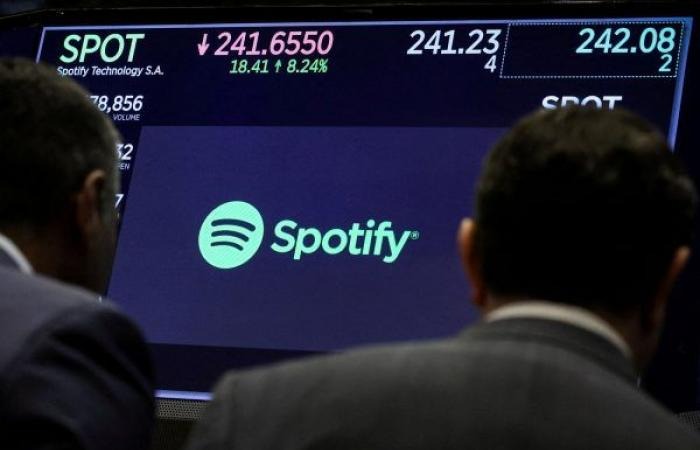Swedish composer becomes Spotify’s most famous unknown

Johan Röhr’s 2,700 songs have amassed 15 billion streams, surpassing the play count of artists like Britney Spears and Abba
A composer, previously undisclosed, who released music under numerous aliases, has been revealed as Sweden’s most streamed artist on Spotify, surpassing the play counts of Britney Spears and Abba.
Johan Röhr, based in Stockholm, has been identified as the individual behind over 650 different artist names on the streaming platform, accumulating 15 billion streams. This makes him the most streamed artist in Sweden.
According to the Swedish newspaper Dagens Nyheter (DN), which uncovered the identity of the 47-year-old, Röhr has produced over 2,700 songs on the platform under aliases such as “Maya Åström,” “Minik Knudsen,” “Mingmei Hsueh,” and “Csizmazia Etel.”
According to the newspaper, Johan Röhr’s various identities have made him one of Spotify’s top 100 most-streamed artists worldwide, surpassing Michael Jackson, Metallica, and Mariah Carey.
A significant portion of his success is attributed to his presence on over 100 of Spotify’s official instrumental playlists, which are curated by the company itself.
Playlists with names like “peaceful piano” or “stress relief” are particularly favored by users looking for background music while working, dining, or unwinding. Being featured on one of these widely followed lists can significantly impact a musician’s career.
In the past year, Spotify marked a milestone by distributing a record-breaking 90 billion Swedish kronor (£6.7 billion) to the music industry. “Many new and promising artists are now finding success on Spotify and can finally pursue music as a full-time career,” remarked Daniel Ek, Spotify’s CEO. “We are incredibly proud of this achievement.”
However, critics argue that the rise of a few anonymous artists like Röhr, who silently dominate the market, contradicts the company’s pledge to support small, independent musicians, record labels, and composers.
The exact amount that Röhr, who has experience as a conductor for pop stars’ tours and television, has earned from his agreement with Spotify remains unknown. However, his private company reportedly generated 32.7 million kronor (£2.4 million) in 2022, marking a record year.
Röhr declined to comment to DN and did not respond to the Guardian’s request for comment. However, Overtone Studios, the record label that released his music, described Röhr as a “pioneer in the mood music genre” and confirmed his use of multiple aliases.
Niklas Brantberg, the CEO of Overtone Studios, stated, “Johan Röhr was the initial artist AP Records (now Overtone Studios) collaborated with. Röhr released music under numerous artist profiles, becoming a pioneer in the mood music genre, which is now highly popular. Many of these projects are now historical and inactive, and we have already significantly reduced the number of active artist profiles.”
We believe that artists with diverse talents should have the freedom to release music under different artist names, a practice that is common in the industry. This allows them to explore various genres and moods, collaborate with different artists, and evolve throughout their musical careers. By offering a 50/50 royalty split, Overtone Studios aims to provide an equitable partnership that supports our extensive roster of artists in earning a living in the industry.
Spotify stated that it does not comment on its agreements with distributors, which are tied to royalties, but it does allow artists to use pseudonyms.
A spokesperson for Spotify stated, “There is a rising interest in functional music designed to enhance everyday activities such as relaxation, focus, or studying, and these playlists are curated to meet listener demand. This type of music is typically found in Spotify’s Focus hub, which minimizes competition with artists from traditional popular music genres.
“As the demand for functional music for relaxation, focus, or studying has increased among listeners, more artists and record labels are choosing to create this type of content. Like all other music on Spotify, this music is licensed from rights holders, and we pay royalties according to the agreements we have with the distributor. Each agreement is unique, but we do not provide specific comments on them, nor do we prevent an artist or band from releasing music under their own name or under various pseudonyms.”


